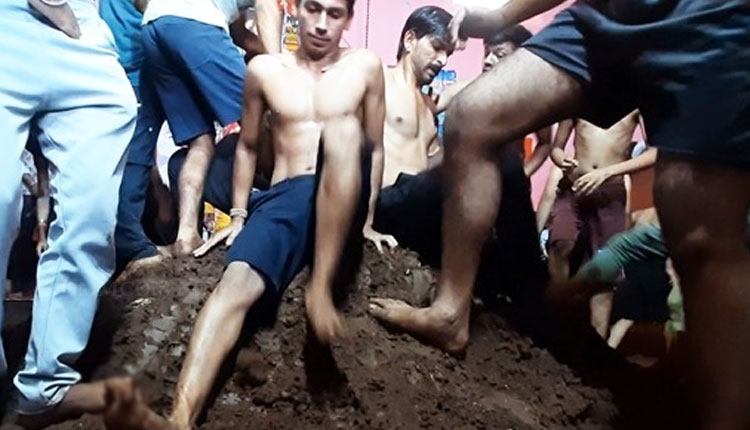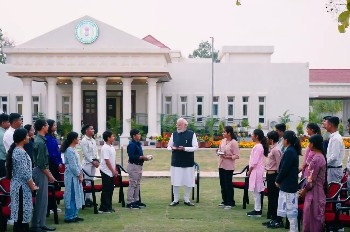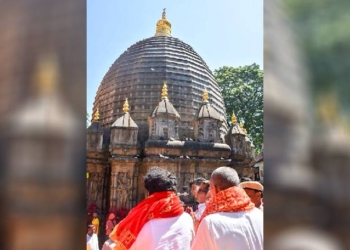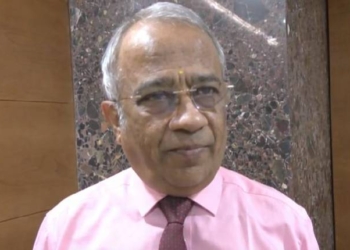Kota: India is a land of diverse and deeply rooted traditions, and when it comes to Dussehra, each region has its own unique way of symbolising the victory of good over evil. In Rajasthan’s Hadoti region, the small but culturally rich Jethi community upholds a distinctive tradition of ‘killing’ Ravan, not by burning, but by trampling a clay effigy underfoot.
While the rest of the country prepares to burn large effigies of Ravan on Vijayadashami, the Jethi community in Kota’s Nanta area continues their centuries-old custom. Every year, members of the community craft a clay Ravan at the beginning of Navratri in a temple. On the day of Dashami, the wrestlers of the community gather to trample the effigy underfoot, marking the symbolic destruction of evil.
This unique tradition is closely linked to the community’s roots in wrestling. The Hadoti region was once ruled by the Hada kings, who were great patrons of the sport. Over a century ago, they invited wrestlers from Gujarat to Kota, and the tradition of wrestling flourished. The Jethi community, often referred to as a wrestler caste, grew from this legacy and continues to celebrate Vijayadashami in a way that honours both physical strength and cultural heritage.
Speaking to IANS, Sohan Jethi, head of the community, said, “We have been following this tradition for 200 years. On Vijayadashami, we kill Ravan with our legs. After that, we pay our respects by touching the feet of our ancestors.”
A large number of local residents, along with women and children from the Jethi community, gather to witness and participate in this rare and symbolic ritual. It serves as both a cultural celebration and a reminder of the community’s historical connection to valour and tradition.
Dussehra, is a major Hindu festival symbolising the triumph of good over evil. It commemorates both Lord Rama’s victory over demon king Ravan and Goddess Durga’s victory over the demon Mahishasura. The festival marks the end of Navratri and signifies renewal, righteousness, and the destruction of negative traits like ego and arrogance.
(IANS)
















